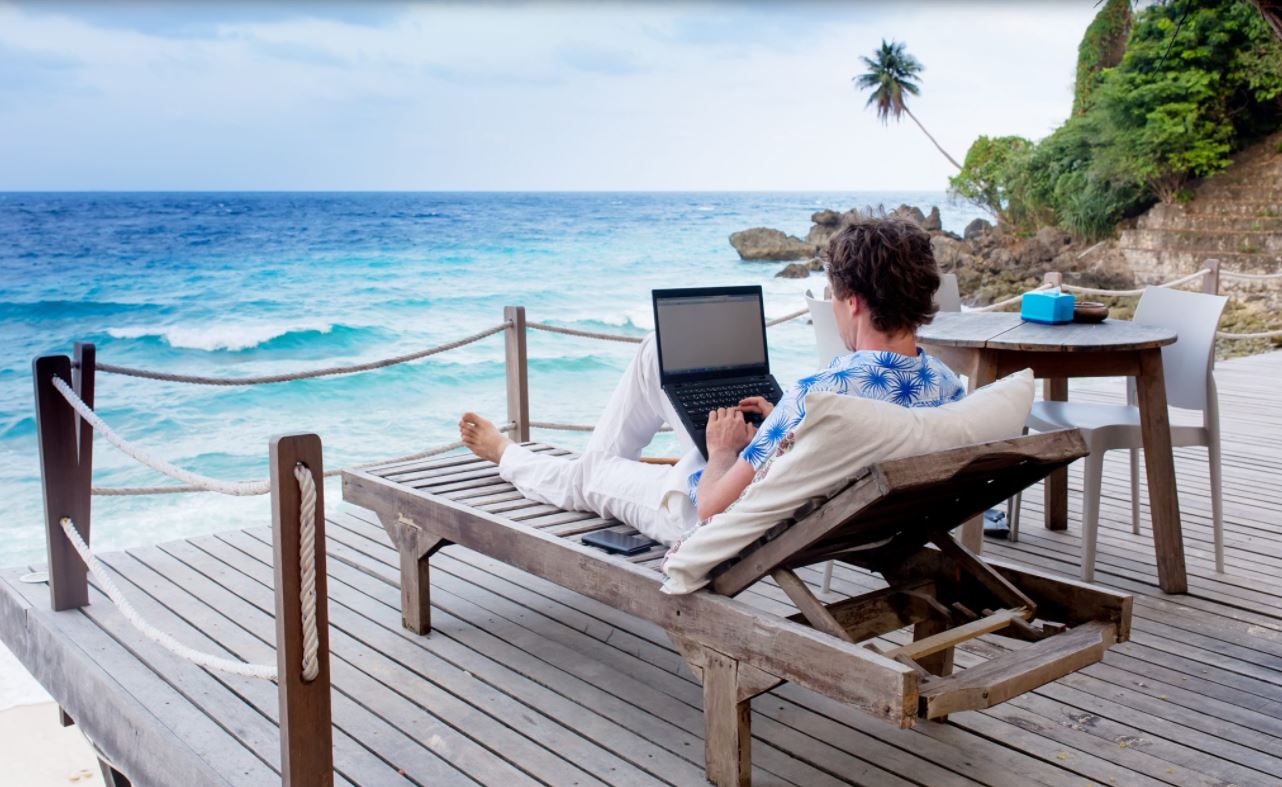Digital nomadism is a dream come true for many people — but don’t think it’s either easy or stress-free. While the whole point of working remotely while traveling is, obviously, freedom, digital nomads usually have to establish a base somewhere first.
First of all, traveling isn’t cheap and time zones may be a huge obstacle for people working remotely. Neither of these is unsolvable, but there’s a bigger issue — emotions.
For many digital nomads, swapping their country means their family and friends will be left behind. Until they meet new friends and get accustomed to the new country/ies, this habit can be a huge obstacle.
Still, the ones you love won’t really be unreachable. Long gone are the days when we communicated via landlines and had to observe too many factors. Nowadays, keeping in touch is way easier and can be done at any time and any place — Viber, WhatsApp, Skype, Zoom and social media… you name it. Not keeping in touch would seem to be more difficult!
Still, there’s that thing called cultural shock. Let’s see how you can adapt faster.
Adapting to a New Culture
Whenever digital nomads are mentioned, people usually imagine a holiday-all-day-long lifestyle. The truth is that getting started isn’t easy, especially if you decide to establish your base of operations in an unfamiliar country.
For most people, the first country is based on its affordability as accumulating funds for traveling is the major goal of digital nomads. If you’re a U.S. citizen, moving to a so-called third-world country may be significantly shocking, even if you’re open-minded.
Different cultures and customs and an unknown language are the first things you are likely to notice. It is highly recommended to learn at least everyday phrases of the country of your residence, for obvious reasons. You need to shop, pay bills, eat and commute — just like the locals — and the best pieces of information are to be gathered from the locals either way.
Simply put, be ready for cross-cultural training, as it is common sense to not offend the locals. After all, you’re a foreigner — no matter how you look at it.
Managing Complicated Taxes and Other Financials
Next on, there are taxes to consider. Multiple ones, mind you. Even if you’re abroad, you’ll need to pay the state and federal tax and there are also the taxes of the country of residence to take into account.
Understanding U.S. expat taxes early on is absolutely necessary as you’ll want to calculate the expenses and know how much money you’ll have at your disposal for traveling (and anything else).
Staying on top of your own insurance comes next. The choice of an insurance plan is one of the most difficult things for digital nomads, as you’ll need to cover international insurance and cancel your plan at home. On top of life and health insurance, there are other plans to consider, too. E.g., if you’re leaving your car at home it may be a better idea to sell it than to leave it be. as its value won’t be skyrocketing any time soon.
These two factors — insurance and taxes — should be the starting point of your plans as a digital nomad. Fixed expenses are easily calculated, but if your earnings differ from month to month, you’ll need to calculate how much you’ll have to work to meet your financial (and traveling) goals.
Staying in Touch With Loved Ones
Staying in touch with friends and family back home may be easy, thanks to apps and tools, but you won’t be there in person, nonetheless. It is all too easy to get trapped in the place of your country of residence, and many people eventually cease communicating with their loved ones back home.
Don’t make that mistake regardless of the time zone or any other excuses. If you’re having difficulties coping with the change, draft a schedule that includes fixed slots for meeting friends online. You can pick any of the many tools available (and many of these are free, too), such as are Zoom or Skype, e.g.
The habit can also help you build stellar interpersonal communication and workflows, which is useful for business purposes, as well as for private contacts. It is also a good idea to set up a good email before even leaving home because you’re likely to be using it a lot.
Thankfully, the abundance of quality email management tools allows for fine-tuning, so take your time choosing the one that suits your needs best. Remember that you’ll be communicating via email all the time, so it’s worth the effort to test multiple tools early on.
Conclusion
If this sounds too complicated and you’re having second thoughts, don’t worry. Digital nomadism really is fun, not to mention that you’ll be meeting many, many interesting people you wouldn’t have the chance to encounter otherwise. Great minds think alike and if you find another stranger in a strange land, chances are, you’re on the same page.
Take your time getting accustomed to things, and enjoy the ride!


